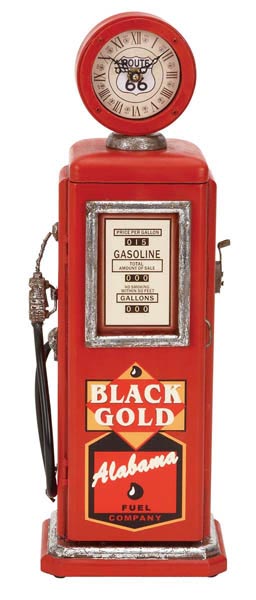  ® ®
|
Fuel Economy |

Powersports customers have a right to be concerned with fuel economy. While motorcycling may not be able to claim fuel mileage in advantageous terms when speaking of anything larger than a scooter (something non-riders are always amazed to hear), fuel economy still counts. And when the rider notices a change in his particular mount, it counts a lot.
One thing many are not aware of is that powersports manufacturers have traditionally (and very unlike car makers) avoided the subject of fuel economy. For one thing, the biggest single influence on fuel economy for a powersports vehicle is user-to-vehicle-weight ratio. The weight difference between a 150 pound driver and a 250 pound driver won't isn't noticeable in a full size car's fuel economy because the user-to-vehicle-weight ratio is so high. Whether 150 or 250, the difference does little to offset the massive weight of the car. But take a 500 pound motorcycle and the difference between the 150 pound rider and the 250 pound rider is huge. The motorcycle's capacity and loading are dramatically affected, hence its fuel efficiency. "Your mileage may vary", right? And the other reasons powersports manufacturers are silent when it comes to fuel economy? Well, there's the rider's throttle use, his gear choices, the road surface types and grade, tire fitment, tire pressure, and even environmental conditions, to name only a few. See why manufacturers avoid the subject? So while forums to their discredit pontificate, manufacturers know better than to go down that rabbit hole.
But another thing affecting fuel economy is chassis maintenance. A few years ago one of my customers had me rebuild two sets of identical carbs for him from two examples of the same model bike. But when he got them back he complained of a 25 percent difference in fuel economy between the two machines. It was finally discovered that the poorer fueling bike needed its drive chain lubed, and thereafter its fuel economy matched that of the other machine. This makes sense if you have worked around a rear wheel horsepower dynomometer and viewed power curves graphically communicating poorly maintained drive chains, bad wheel bearings, low tire pressures, and dragging brake calipers. On vehicles as relatively svelte as motorcycles, these things make a difference.
Even a clogged carburetor fuel passage can be responsible for reduced fuel economy. Come again? A clogged passage? Yes. When a carburetor circuit is working less efficiently than it should, we tend to compensate by using more throttle. And it works in reverse, too. Sometimes overcoming an engine glitch by richening jetting results in no fuel penalty because less throttle is needed to get the same power.
Hopefully this will help you think a little broader and smarter about the subject of fuel economy.
|
|
Further reading: Octane |
| Gasoline |
| Motor oil |
| Oxygenated gas |
Email me
© 1996-2024 Mike Nixon